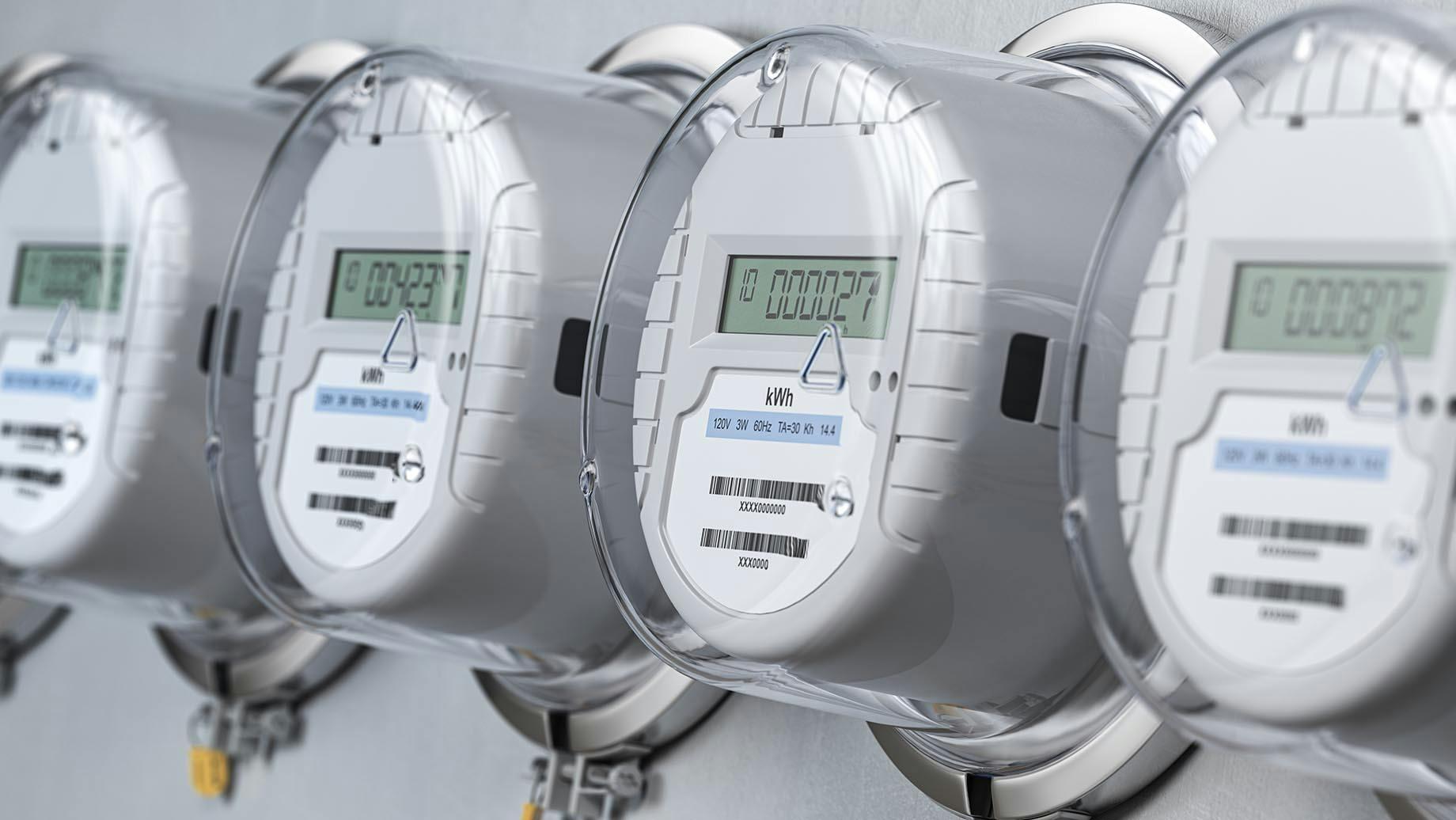
How Much Does a Space Heater Cost to Run Per Day, Month, or Year?
Inspire Clean Energy
10 min read
category: Sustainable Living
Don't worry about climate change— do something about it.
Our clean energy plans are the easiest way to reduce your home's carbon footprint.
Switch to clean energyHow much does it cost to run a space heater?
Space heaters can take anywhere from 750 watts to 3,000 watts to operate. Large space heaters take immense amounts of energy to run. However, those are most likely used only in commercial and industrial settings. The average residential space heater has two main heat settings, low and high. The low setting needs 750 watts to run, whereas the high setting takes 1,500 watts.
Roughly speaking, it will cost about $0.20 to run a 1,500-watt space heater for one hour. This may seem like a very low cost, but you must consider how long and how often you use the space heater. How many hours per day are you running your space heater? Are you using your space heater every day? For example, if you are running a space heater in your basement home office for 8-hours a day, then you can expect to pay $1.60 per day. If there are an average of 21-work days in a month, then you can expect to add around $33.60 per month to your electric bill to run your space heater. This is just one scenario of an infinite amount of possibilities.
Costs all depend on your space heater usage. If using a space heater at a low cost is an absolute necessity, then you may need to consider taking measures to ensure you do not need to constantly run your space heater while you are in the room. Look at ways to better insulate your space, wear extra clothing, or whatever it takes to keep that space heater runtime to a minimum.
How much does a space heater cost a month?
The price that someone pays to run their space heater each month depends entirely on how much they decide to use it. Are they running it 8 to 10 hours a day, 7-days a week, or simply for an hour a few days a week to heat a small room while it is being occupied? If the average 1500-watt space heater costs around $0.20 per hour to run as we mentioned, you can quickly determine how much your monthly electric bill will go up by multiplying total hours of use by $0.20.
Do space heaters use a lot of electricity?
The amount of electricity used by a space heater varies by brand, make, and model. You can find out how much electricity your space heater uses by checking with the user's manual or labels directly attached to the heater for usage information. If not, check the user’s manual. However, as we mentioned earlier, the average residential space heater uses 750 watts of electricity on the low heat setting and 1,500 watts on the high heat setting. So, what does that mean? It is hard to decide whether or not that is a lot of electricity with no frame of reference. Let’s compare how much electricity a space heater uses against some other common household appliance electricity usage:
- Televisions: Television sets can take anywhere from 80 watts to 400 watts to run.
- Computers: Computers are built to use up to 400 watts of electricity, but they rarely do.
- Refrigerators: The average domestic refrigerator can use anywhere from 100 watts to 250 watts.
- Dishwashers: The average dishwasher uses 1,800 watts to run a complete cycle.
- Blenders: A blender typically uses around 400 watts to operate.
- Fans: The average tower fan takes about 100 watts. The average ceiling fan meanwhile takes anywhere from 15 watts to 90 watts to run.
As you can see, a space heater uses considerably more electricity in relation to your regular household appliances. It may be concluded that a space heater does use a lot of electricity.
Is it cheaper to run space heaters or central heat?
Overall, space heaters take less electricity to operate when compared to central heating. The average space heater takes between 750 watts and 1,500 watts to operate. The average home HVAC system takes between 3,000-watts and 3,500-watts to operate. That amount is more than double the electricity needed to run a space heater. Even though it may use less electricity and therefore costs less, when you consider the size of the area that needs to be heated, an HVAC system may be the better option. Space heaters are not as efficient when it comes to properly heating large areas like a full home. For example, if you were looking to try to heat every area of your home with space heaters versus using an HVAC system, it ultimately would be more inefficient and cost more in the long run. If you are looking to heat a single room while it is being occupied, then running a space heater and turning down the central heating may be a more cost-effective solution.
What are the different types and sizes of space heaters?
When it comes to choosing a space heater for your home, there are many different types of heaters that all come in various sizes. There are personal heaters, room heaters, and portable space heaters. There are also outdoor heaters, but we will focus solely on the interior of the home.
Types of Space Heaters: The type of heater you use is typically determined by the area that requires heating. Each type of space heater has its own benefits to allow for the most efficient and effective usage.
- Personal heaters are compact and can heat a small area quickly.
- Room heaters are intended to heat a single room in a reasonable amount of time to a comfortable level.
- Portable heaters are built to be transported either around the home, into the garage, or along with you to keep you warm during recreational outings.
Types of Fuel for Space Heaters With the different types of space heaters, there also come fuel types. Space heaters use different fuel types to maximize their heating capabilities based on their intended purpose.
- Gas heaters commonly use either liquid propane or natural gas to operate. Infrared heaters do not necessarily heat the air of the room as well as other fuel types, but they do provide heat directly to people or specific objects.
- Convection heaters use natural airflow to heat a room and take longer to provide heat, but once they do, they can be extremely heat and energy-efficient.
- Panel space heaters typically use both convection and infrared heat technology.
- Radiator space heaters are electric, however, they use oil to produce heat.
- Liquid propane heaters are extremely reliable and can produce large amounts of heat for longer periods.
- Natural gas space heaters require expensive professional installation, but over time natural gas heaters can save you on fuel costs when compared to liquid propane heaters.
Space Heater Size When it comes to the size of space heater you may need, if the average bedroom in the U.S. is 132-square feet, then a standard 750/1,500-watt electric space heater should suffice. If you are considering gas, then a gas heater that ranges anywhere from 2,557 to 5,115 BTUs would be ideal. If the average living room in the U.S. is 340-square feet, then an electric heater closer to 3,000 watts may be best. For a gas heater to produce enough heat to comfortably warm a 340-square foot living room, then a gas heater that is closer to 10,000+ BTUs might be needed. That being said, electric heaters can be found in all sizes from as little as 500 watts to as powerful as 4,000 watts. When it comes to gas heaters, they can range from 1,705 BTUs to 13,640 BTUs or more.
How much does it cost to run a 1500-watt space heater?
The cost to run a 1,500-watt space heater depends on how much your energy company charges you for electricity. However, in the United States, the average household pays somewhere around $0.20 per hour to run their electric space heater. If you take this average, you can determine an estimate of what your electricity bill might look like when operating a space heater indoors.
What are the advantages of space heaters?
There are many advantages to owning a space heater. First, they are affordable, and if needed, they can be purchased the same day. If you have heating needs, you can immediately go out to the store and purchase an affordable heater. Having any type of HVAC or permanent heating system solution takes time and can be expensive. Second, they are extremely easy to use. Electric heaters simply plug into the wall and they are ready to go. Third, they can heat a room in a fairly short amount of time. Last, they are portable and can be moved from room to room with ease.
Advantages:
- Affordable and easily accessible from any local home goods retailer
- Easy to use and uncomplicated
- Heat up in a short amount of time
- Portable
What are the disadvantages of space heaters?
There are some disadvantages, however, that need to be considered as well. In general, space heaters are limited to small areas and they can get bulky and expensive if you are trying to heat a large area. Additionally, they can be expensive if they are overused. Sure, if you use the space heater for a few hours every once in a while to heat an area that is being occupied, then the costs will be minimal. However, if you intended to run a space heater 24-hours a day, 7-days a week, then the costs could become extremely expensive.
Disadvantages:
- Can only be used to heat smaller confined spaces
- Maybe expensive if not used conservatively
Do space heaters save money on an energy bill?
Overall, you may be able to save money on your energy bill by using a space heater if you use it properly. The proper way to use your space heater is to heat one room at a time while it is being occupied. When the room is being occupied and you are using the space heater, you then can turn down the thermostat on the central heating system. For example, you and your family are in the living room in the evening and intend to spend time there together for several hours. You can then turn down the thermostat on the central heating system and rely on the space heater to make the room comfortable while you enjoy quality family time together. Used correctly in situations like these, and you may see some cost savings on your energy bill.
It's never been easier to lower your home's carbon emissions and make an impact on the planet. In minutes, you can switch your energy supply to 100% renewable energy with Inspire and reduce your home’s net-carbon emissions.
To get started, visit our homepage and enter your address and/or ZIP Code. If Inspire’s clean energy supply plans are available in your area, you can proceed with linking your utility and discover the beginning of consistent monthly energy bills.
Access clean energy for one flat monthly price—subscribe today.
Don't worry about climate change— do something about it.
Our clean energy plans are the easiest way to reduce your home's carbon footprint.
Switch to clean energy
Inspire Clean Energy
We're on a mission to transform the way people access clean energy and accelerate a net-zero carbon future.
Learn more about Inspire →Explore more
Recent Posts
Top Articles





















